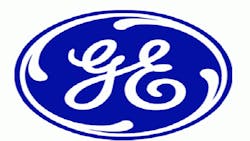ABUJA -- Nigeria has signed a $1 billion memorandum of understanding with General Electric (IW 500/5) to build a factory that could create up to 2,300 jobs in Africa's most populous country, a statement said Friday.
The deal includes $250 million in up-front spending on the project in the southeast city of Calabar, near the oil hub of Port Harcourt, with the balance of the funds to be invested over time.
Trade and Investment Minister Olusegun Aganga said the deal was in line with Nigeria's twin goals of improving power supplies and diversifying the economy beyond energy production, although the statement did not specify what the factory would produce.
"The investment is in critical areas of our economy, which is power infrastructure," Aganga was quoted as saying at the Thursday ceremony in the capital Abuja.
Nigeria, Africa's top oil producer, still sees rolling power cuts every day but the government of President Goodluck Jonathan has promised to improve electricity supply.
Oil and gas earnings have largely been responsible for Nigeria's steady economic growth over the last ten years, which has averaged seven percent, according to official figures.
But the government's own statistics also say that poverty actually worsened in the country between 2004 and 2010, a trend that analysts said was partly the result of excessive reliance on an energy sector that produces few jobs.
"There is no nation that has moved from being a poor nation to a rich one by exporting raw materials without a strong industrial base," Aganga said at the ceremony attended by GE's CEO Jeffrey Immelt.
"The days for exporting raw materials and jobs are gone. This is a new Nigeria," he added.
The statement said that the deal "is expected to create 2,300 jobs and make Nigeria the regional hub for GE's manufacturing service and innovation in Africa."
Aganga assured that Nigeria, where corruption remains rampant and where operating a business often involves wrestling with significant bureaucratic hurdles, would increasingly become an attractive investment target for foreign firms.
Copryright Agence France-Presse, 2013
About the Author
Agence France-Presse
Copyright Agence France-Presse, 2002-2025. AFP text, photos, graphics and logos shall not be reproduced, published, broadcast, rewritten for broadcast or publication or redistributed directly or indirectly in any medium. AFP shall not be held liable for any delays, inaccuracies, errors or omissions in any AFP content, or for any actions taken in consequence.
